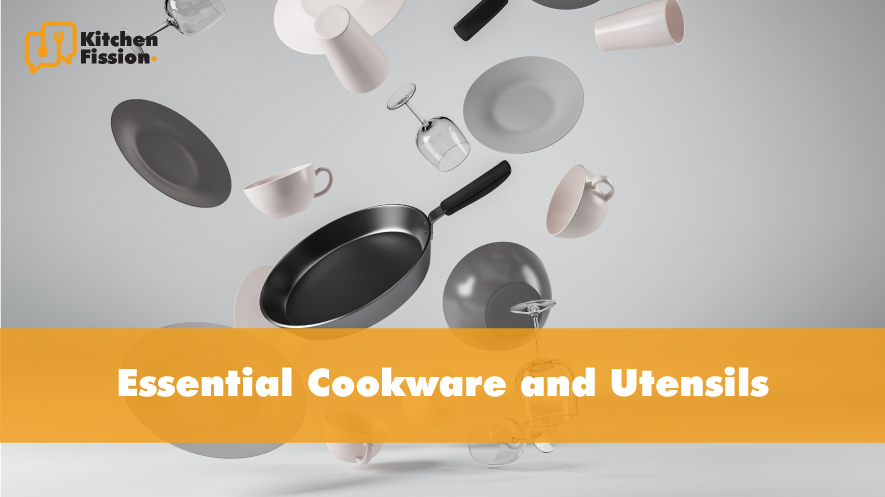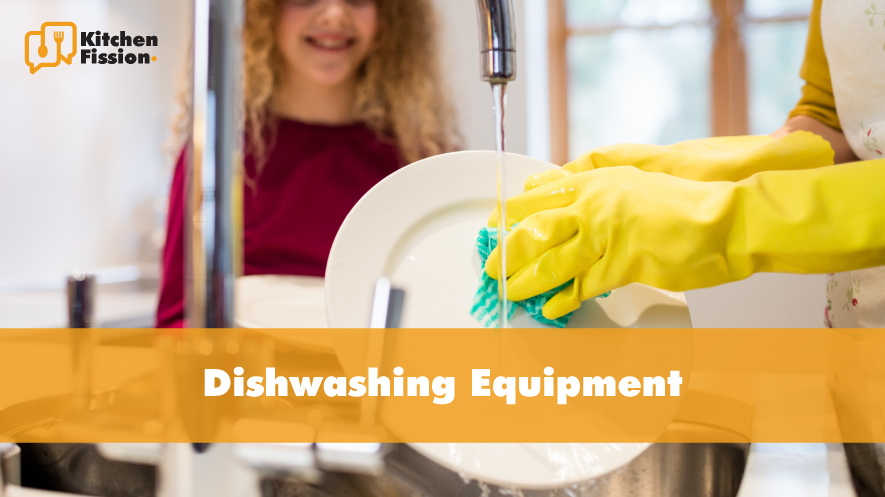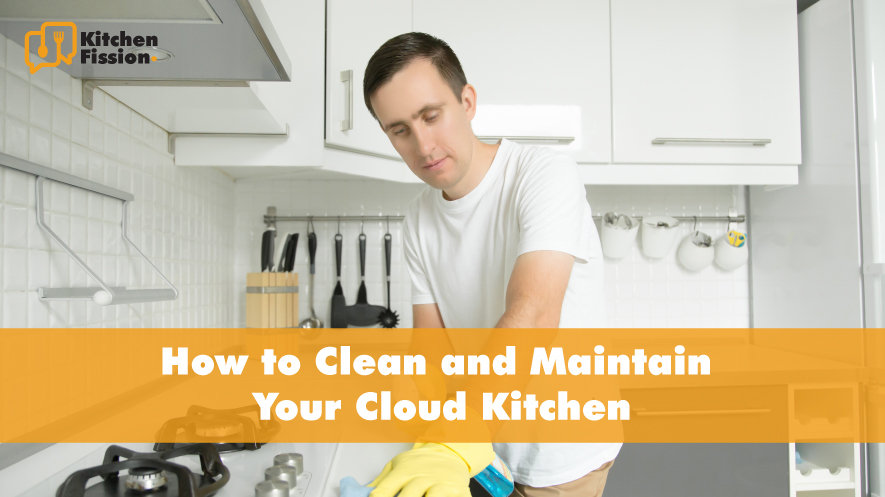Maintaining a cloud kitchen can be time-consuming and difficult. However, the cleanliness of kitchen appliances and tools is a key factor in food safety. That’s where commercial kitchen cleaning services come in handy.
These companies specialize in deep cleaning and sanitizing kitchen equipment, keeping it hygienic. They use industrial-grade cleaners and equipment to ensure your kitchen is safe for food preparation.
Defining Your Budget
With more and more consumers turning to food delivery services, restaurant owners and entrepreneurs are recognizing the potential of cloud kitchens as a way to streamline the preparation and distribution of meal orders. However, establishing a profitable cloud kitchen requires careful planning and understanding of the expenses associated with operating a commercial kitchen. This includes factors such as rent, equipment costs, utility bills, and marketing fees.
To avoid unanticipated costs, you should define your budget early on to ensure the success of your cloud kitchen. This will help you plan and execute strategies to reduce expenses such as optimizing your menu, reducing waste, and finding the best food suppliers.
The average cost to set up a small cloud kitchen ranges from $300-$400 depending on the location of the kitchen and the amount of food storage space needed. However, it’s important to note that these initial setup costs are only a fraction of the total operational costs. It’s also vital to understand that ongoing expenses like rent, equipment maintenance, staff salaries, utility bills, and marketing expenses will significantly add up over time.
Another major expense to consider is licensing and permits. These requirements vary based on local guidelines, but some common expenses include a food service license, health department permits, and fire safety clearance. Moreover, a cloud kitchen should always have a contingency fund for unforeseen expenses such as equipment repairs, plumbing problems, or emergency maintenance.
A well-equipped cloud kitchen should have essential cooking supplies and utensils such as pans, pots, and stovetop burners, as well as a three-compartment sink to allow for separate washing, rinsing, and sanitizing of kitchenware. In addition, you’ll need to invest in cleaning supplies like dish soap, sanitizer, and a first-aid kit.
It’s also important to establish a clear workflow in your cloud kitchen. This will help you maintain a consistent workflow and avoid any delays or disruptions to the production process. Furthermore, you should track your data to identify inefficiencies in your workflow, such as overproduction of certain items or unnecessary purchases. This information can help you make adjustments to your recipe and processes, which will lead to a more efficient kitchen.
Essential Cookware and Utensils
One of the most important elements in a cloud kitchen is cookware and utensils. They are needed for food preparation and serving, and they should be durable and easy to clean. Different types of cookware can be used, depending on the type of cuisine that will be prepared. Some of the most essential items include pots, pans, and baking sheets. Other equipment such as a microwave oven and a griddle are also helpful for preparing dishes.
Refrigerators and freezers are also necessary for storing food products. They can be either reach-in or walk-in models, depending on the amount of storage space required. It is important to select a model that has adequate capacity and energy efficiency. A sink is another essential piece of equipment for a cloud kitchen as it provides a place for washing and cleaning food items and utensils. It is also important to select a sink that is large enough and equipped with a draining system to allow for adequate water flow.
It is also important to have a point-of-sale (POS) system in the cloud kitchen for processing orders and tracking sales. The POS system should be reliable and easy to use, and it should also meet local restaurant-specific requirements. Other equipment that may be necessary for a cloud kitchen includes a fire suppression system and an HVAC system. The former is essential for reducing the risk of fires in the kitchen, while the latter is needed to keep the cooking area comfortable and hygienic.
While cleaning a kitchen is not an easy task, it is essential for the safety and sanitation of the food that will be served to customers. It is crucial to establish a schedule for cleaning tasks and follow it closely. This should include wiping down counters and equipment after every use, sweeping floors regularly, and washing utensils and dishes daily or as often as possible. It is also important to have the right cleaning supplies and sanitizers for all the different kinds of equipment in the kitchen. It is also a good idea to have a first-aid kit in the kitchen in case of any accidents that may occur.

Safety and Sanitation Equipment
Having the right kitchen equipment is important for a cloud kitchen because it can help you create quality dishes that can impress your customers. Moreover, it can also help you save money in the long run by increasing your cooking efficiency and making your food products more profitable.
While establishing a cloud kitchen requires different requirements and regulations than traditional restaurants, it still has to comply with all applicable health and safety laws. To ensure that your business complies with these laws, you need to have a comprehensive food safety plan and sanitary equipment in place.
Before you can start producing food in a cloud kitchen, you must first secure a space that is suitable for your purposes. This includes ensuring that the space is properly zoned and has sufficient room for expansion. You must also consider whether the area can support a variety of menu items. Moreover, you need to research the food delivery market and understand how it affects your business.
You must also make sure that your cloud kitchen is equipped with the necessary tools to prepare and distribute food. These include commercial-grade cooking equipment, such as stoves, ovens, and griddles. In addition to this, you need to have enough refrigeration and storage units to accommodate your menu items. This is essential for preventing food contamination and maintaining proper temperature control. Moreover, you must also have cleaning supplies, such as soaps, sanitizers, and brushes. Finally, you need to have a first-aid kit for any injuries that may occur in the kitchen.
A POS system is mandatory for cloud kitchens, as it allows you to track orders and sales, and is also the only way for your customers to pay for their meals. Additionally, you need to have an exhaust hood to remove smoke and heat from the kitchen. You should also have a fire suppression system to prevent and extinguish any fires that might occur.
Creating and implementing a cleaning checklist is essential for ensuring that your kitchen meets all health and safety standards. A low-code platform like DATAMYTE can help you create and implement a kitchen cleaning checklist quickly and easily. It also enables you to conduct layered process audits (LPA), which is a high-frequency evaluation of critical processes to identify and address any failures and areas with the highest risk of non-compliance.
Dishwashing Equipment
The kitchen needs a lot of equipment to run smoothly and efficiently. You’ll want to find a space that is spacious enough to accommodate all the necessary appliances and cooking wares. You also need to make sure that it’s zoned for commercial food preparation and that you have the right permits to operate in the location.
A kitchen sink is essential because it will be used to rinse dishes and utensils. You’ll need to make sure that it has hot and cold running water and soap dispensers. In addition, you’ll need to have a hand wash sink that is easily accessible for employees to use after handling food. This is important to prevent germs from spreading in the kitchen and to keep your food safe for consumers.
An oven is another must-have piece of equipment for a cloud kitchen. Depending on your business, you might need to bake bread or cakes or prepare a variety of other foods. You’ll need to ensure that the oven you purchase is large enough to handle your menu items and the volume of orders you anticipate receiving.
Refrigerators are also important in a cloud kitchen. They’ll serve as storage for raw ingredients, leftovers, and other inventory. It’s a good idea to invest in a walk-in refrigerator, which will allow you to store multiple brands’ inventory in one area. If you’re unsure which type of refrigeration system to buy, consult with professional refrigeration contractors for help choosing the best one for your cloud kitchen.
Running a cloud kitchen requires special skills and training to ensure that you’re complying with all the proper sanitation and safety guidelines. You need to set up a HACCP plan and create control points for food handling, cleaning, storage, and delivery services. You’ll need to establish a protocol for responding to customer complaints as well. And because you won’t be interacting with customers directly, you’ll need to figure out how to motivate and retain staff.


